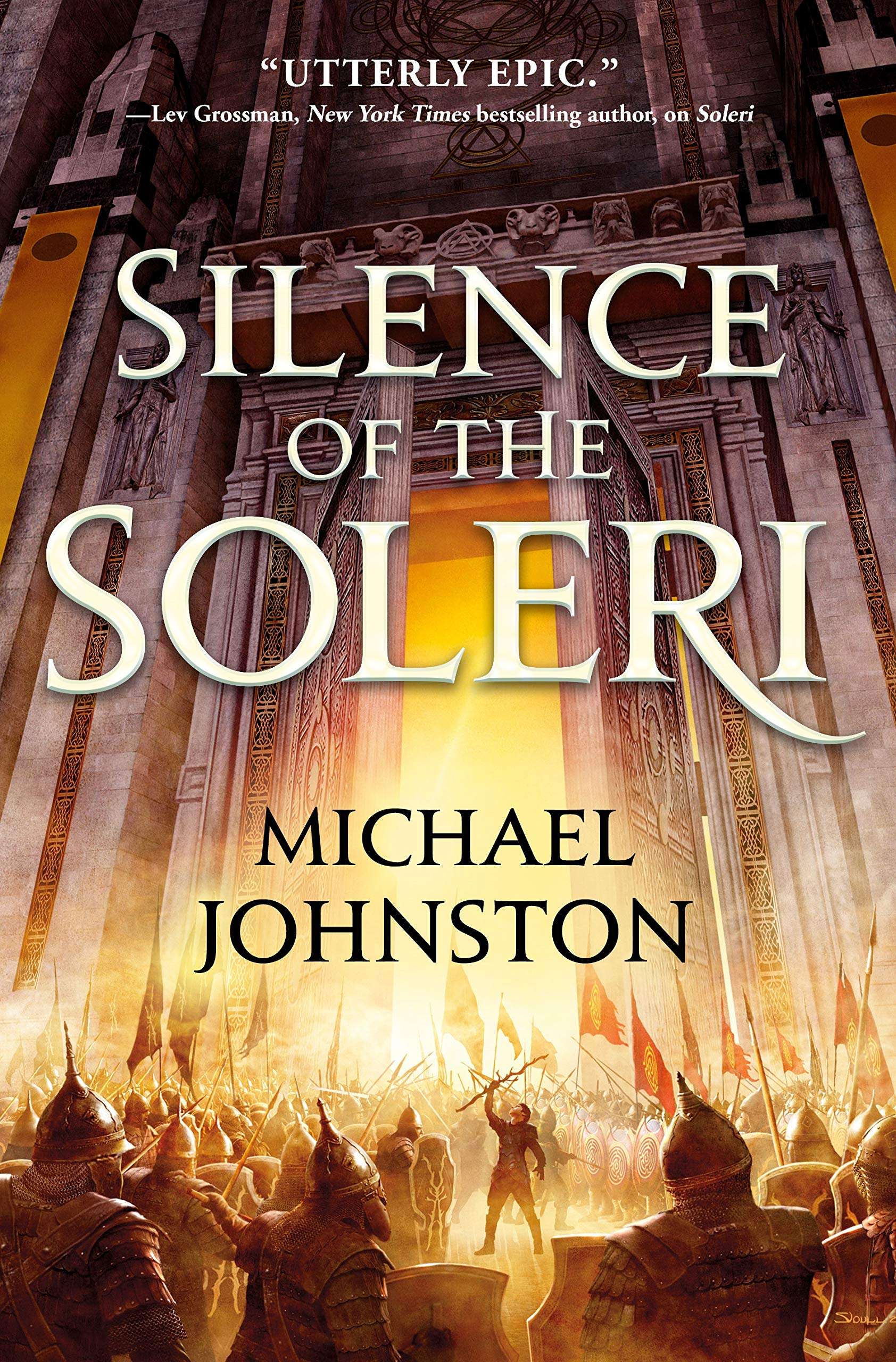Silence of the Solari
Book Two of The Amber Throne Series
Michael Johnston
In 2017, Michael Johnston introduced his Amber Throne series with the novel Solari, which introduced readers to a world of warlords and priests, of shining cities, desert strongholds and lush forest domains. Kingdoms elbowed each other for prestige and power, but always, there was the city of the Solus, where the ruling family, descended from gods, has existed in seclusion for longer than written time. In this first book we meet the key players in the Solari Empire, and get to know them as people rather than merely rulers, military leaders and hierophants – those that survive, at least.
But we also learn a secret known to very few – the Solari are missing, and have been for hundreds of years. The façade of their existence has been kept to preserve order (and the balance of power) in a world built around their powerful foundation.

It’s a mighty bit of worldbuilding, which manages to be unique as well as familiar.
In Silence of the Solari, published on February 16, 2021, Michael Johnston takes us a step further into this imaginative and fractious world. Since we already know the lie on which the Solari Empire turns, he is able to take us deeper into the lives defined by that turmoil (whether the players are aware of it or not), especially the Hark-Wadi family, rulers of the Kingdom of Harkana, one of the few kingdoms to ever defy the Empire and survive. While they are not always the conniving catalysts of discord one might expect of a defiant ruling family, the Hark-Wadis always appear to be at the apex of it, from the mother who fled to become the Solari high priestess, to the young heir, Ren, who had been held as tribute (read: hostage) in the Priory in Solus (read: prison) since age three; from the eldest daughter Merit, who believes she loves the king of Feren and wishes to rule by his side, to the younger daughter Kepi, who is betrothed to the man, instead. In Silence of the Solari, each of these characters are complexly crafted as players who are both defining their world and being defined by the political ambitions of those around them, who derive both strength and fall prey to weakness due to their own emotions and passions.
These books are epic fantasy at its most brutal; there are few idyls here and much that hinges on pure survival. The politics are ruthless and the warfare is bloody; cruelty and avarice abound, even when dressed up in priestly robes and shrouded behind masks of glittering gold. There are very few noble characters in these books, and even they harbor secrets that threaten to betray them as much as the scheming and ambitions of others will. Some of those championing the most heroic of causes allow for the most atrocities within their wake. Yet anger and rebellion do not damn those we meet, and not all ambition is based on greed.
This swirling milieu of intrigue, machination, deceit, betrayal, secrets and ambition certainly will keep a reader on their toes, but the characters that inhabit these pages refuse to fade into the visceral cacophony of the story, instead standing defiantly smack in the middle of it. If you enjoy your epic fantasy bloody and bold, then the promise hinted at in Solari is fully unfurled in Silence of the Solari. And while parts of the story are resolved by the end of this second book, there is still far more to come.
~ Sharon Browning

